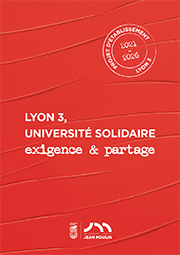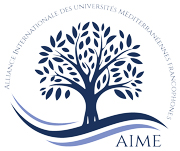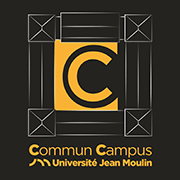AccueilRechercheProgrammes et productions scientifiquesThèsesThèses soutenuesThèses soutenues - 2006-2021Thèses soutenues - 2012
-
Partager cette page
- Recherche,
DE PREMONVILLE DE MAISONTHOU Antoine - Louis
La crise mémorielle et ses lois en Espagne de 1931 à nos jours.
Publié le 2 mai 2012 – Mis à jour le 3 mai 2012
Thèse en Cultures et sociétés en Europe soutenue le 27 Avril 2012
Depuis plus d’une dizaine d’année, l’on assiste à une résurgence de la mémoire historique en Espagne. Qu’il s’agisse des contemporains ou de leurs héritiers, la mémoire des vaincus de la Guerre Civile, autrefois passée sous silence, est devenue incontournable aussi bien sur le plan historiographique que culturel et même politique (loi dite de ? mémoire historique ?). Les nombreux succès éditoriaux et cinématographiques relatifs à cette période douloureuse ont contribué à la diffusion d’épisodes méconnus et à la réappropriation d’un passé qui n’avait pas toujours été transmis aux générations successives. Toutefois, l’activisme des uns ne fait pas l’unanimité. Entre ceux qui ne souhaitent pas rouvrir les blessures du passé au nom d’une concorde nationale difficilement obtenue, et ceux qui se sentent mis en accusation par un ? triomphe des vaincus ? qui tend à ne présenter le conflit civil que sous l’angle de la lutte des ? bons ? contre les ? méchants ?, l’on a pu observer une crispation partisane des débats au détriment de la science historique. La question mémorielle a atteint de telles proportions que certains commentateurs se sont demandés si la Guerre Civile était ou non terminée. Quoique l’évolution de l’historiographie soit indéniable depuis 1931, elle ne saurait s’expliquer entièrement par la lutte partisane des héritiers des deux camps. En effet, il nous faut nous intéresser également à des causes plus profondes qui en sont à l’origine. Si le cas espagnol s’inscrit dans un contexte européen d’irruption de la mémoire dans l’histoire, il s’explique aussi par des raisons propres qui touchent bien d’autres domaines.
Over the past decade, the question of Spanish historical memory has been debated a lot. Whereas the memory of the Spanish Civil War’s defeated had been kept silenced for years, nowadays, the story of direct witnesses – often told by themselves or their heirs – has become inevitable from a historical, cultural and political point of view (see the “historical memory” Act). Many best-selling books and box-office hit films dealing with this painful historical period have contributed to generalise some neglected events which had not always been properly transmitted to the younger generations. However, the memorial activism of various individuals is not unanimously accepted. Indeed, some people consider that such a revival of a painful past might pose a threat to a national harmony which was not easy to obtain. Others, belonging to the national fraction, feel directly accused by the late “triumph” of yesterday’s defeated. The frequent parallel drawn between the Civil War and a would-be fight of the “goods” against the “evils”, has fuelled a partisan debate at the expense of historical truth. The debate on historical memory has become so serious that some analysts do wonder if the Civil War is over or not. The evolution of historiography since 1931 is real, but it should not be explained exclusively by the biased opposition of the heirs of both camps. In fact, we have to take into account deeper reasons at the roots of the problem. The Spanish case cannot be dissociated from a European context, even if it has to be explained by its own particular reasons which affect many other knowledge domains.
Mots clés : Al-?ndalus ; amnistie ; armée espagnole ; camp national ; Catalogne ; catholicisme ; conquistadors ; Communautés Autonomes ; démocratie ; Espagne ; espagnolisme ; ?glise ; ETA ; Francisco Franco ; franquisme ; Galice ; Guernica ; guerre civile espagnole ; hispanité ; Ibero-Amérique ; Islam ; juancarlisme ; Juda?sme ; loi de mémoire historique ; lois mémorielles ; mémoire historique ; monarchie ; nationalisme ; Pays Basque ; phalangisme ; protestantisme ; républicain ; Seconde République ; transition démocratique ; Valle de los Caídos ; 1898.
Key-words : Al-Andalus; Autonomous Communities; amnesty; Basque Country; Catalonia; Catholicism; Church; conquistadors; democracy; ETA; Falangism; Francisco Franco; Francoism; Galicia; Guernica; historical memory; Hispanic identity; Spain; Spanish army; Spanish Civil War; Spanish nationalism; historical memory law; Ibero-America; Islam; Juan Carlos I; Judaism; memorial laws; monarchy; national faction; nationalism; Protestantism; Republic; republican; transition to democracy; Valle de los Caídos ; 1898.
Directeur de Thèse : Didier HUGUES
Membres du jury :
ELOSEGUI ITXASO Maria, Professeur à l'Université de Zaragoza
PEREZ LOPEZ Pablo, Professeur, Université de Valladolid
OTAOLA GONZALES Paloma, Profeseur, Université Jean Moulin Lyon 3
DIDIER Hugues, Professeur émérite, Université Jean Moulin Lyon 3
Président du jury : Paloma OTAOLA GONZALEZ
Mention : Très honorable avec les félicitations du jury
Equipe d'accueil : CEDFL
Over the past decade, the question of Spanish historical memory has been debated a lot. Whereas the memory of the Spanish Civil War’s defeated had been kept silenced for years, nowadays, the story of direct witnesses – often told by themselves or their heirs – has become inevitable from a historical, cultural and political point of view (see the “historical memory” Act). Many best-selling books and box-office hit films dealing with this painful historical period have contributed to generalise some neglected events which had not always been properly transmitted to the younger generations. However, the memorial activism of various individuals is not unanimously accepted. Indeed, some people consider that such a revival of a painful past might pose a threat to a national harmony which was not easy to obtain. Others, belonging to the national fraction, feel directly accused by the late “triumph” of yesterday’s defeated. The frequent parallel drawn between the Civil War and a would-be fight of the “goods” against the “evils”, has fuelled a partisan debate at the expense of historical truth. The debate on historical memory has become so serious that some analysts do wonder if the Civil War is over or not. The evolution of historiography since 1931 is real, but it should not be explained exclusively by the biased opposition of the heirs of both camps. In fact, we have to take into account deeper reasons at the roots of the problem. The Spanish case cannot be dissociated from a European context, even if it has to be explained by its own particular reasons which affect many other knowledge domains.
Mots clés : Al-?ndalus ; amnistie ; armée espagnole ; camp national ; Catalogne ; catholicisme ; conquistadors ; Communautés Autonomes ; démocratie ; Espagne ; espagnolisme ; ?glise ; ETA ; Francisco Franco ; franquisme ; Galice ; Guernica ; guerre civile espagnole ; hispanité ; Ibero-Amérique ; Islam ; juancarlisme ; Juda?sme ; loi de mémoire historique ; lois mémorielles ; mémoire historique ; monarchie ; nationalisme ; Pays Basque ; phalangisme ; protestantisme ; républicain ; Seconde République ; transition démocratique ; Valle de los Caídos ; 1898.
Key-words : Al-Andalus; Autonomous Communities; amnesty; Basque Country; Catalonia; Catholicism; Church; conquistadors; democracy; ETA; Falangism; Francisco Franco; Francoism; Galicia; Guernica; historical memory; Hispanic identity; Spain; Spanish army; Spanish Civil War; Spanish nationalism; historical memory law; Ibero-America; Islam; Juan Carlos I; Judaism; memorial laws; monarchy; national faction; nationalism; Protestantism; Republic; republican; transition to democracy; Valle de los Caídos ; 1898.
Directeur de Thèse : Didier HUGUES
Membres du jury :
ELOSEGUI ITXASO Maria, Professeur à l'Université de Zaragoza
PEREZ LOPEZ Pablo, Professeur, Université de Valladolid
OTAOLA GONZALES Paloma, Profeseur, Université Jean Moulin Lyon 3
DIDIER Hugues, Professeur émérite, Université Jean Moulin Lyon 3
Président du jury : Paloma OTAOLA GONZALEZ
Mention : Très honorable avec les félicitations du jury
Equipe d'accueil : CEDFL
Documentation
Mise à jour : 3 mai 2012







